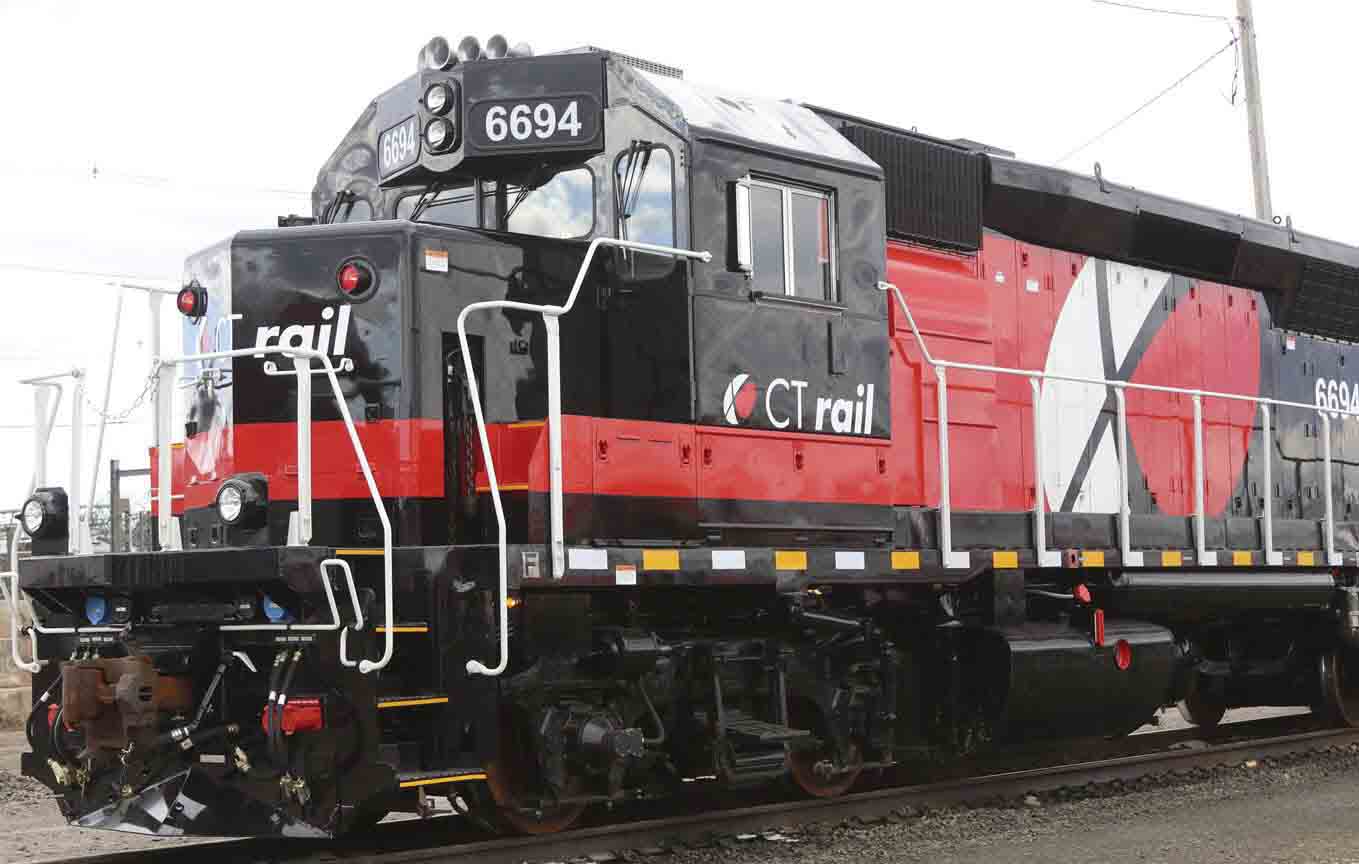
CT Department of Transportation
On the face of it, amid widespread reductions in transportation services across Connecticut, the opening of a new rail line ought to be received with enthusiasm. But reaction to the planned launch of the new Hartford Line in May has been mixed to say the least.
The 62-mile commuter rail line will run 17 round-trip weekday trains between New Haven and Hartford. The state has arranged a deal with Massachusetts Bay Transportation Authority to lease 16 out-of-service rail cars for three years, with an option for renewal after the term ends. Leasing and repairs will cost Connecticut a combined $4.54 million for the first three years, and the bill could climb to a total of $9 million if the contract is extended another three years. But the catch is that these rail cars are 30 years old and deemed in need of “serious overhaul” by Massachusetts.
“I feel that the media misrepresented a lot of things,” Connecticut Department of Transportation Commissioner James Redeker said. “Our comfort level with these cars is very high.”
Leasing old, unwanted cars from another state was not the department’s original intention. When the Department of Transportation was devising a budget for the Hartford Line in 2016, it planned on using coaches currently employed on Shore Line East, while allocating New Haven Line rail cars to Shore Line East in their place. This meant that the 2016 budget did not have to include funding for the purchase of new cars.
But New Haven Line ridership has been larger than anticipated, necessitating all cars on hand to meet the demand. According to Redeker, this called for a change of strategy. Because rail cars have to be purchased in bulk, it was not feasible for the state to buy new coaches at this point in the fiscal year, especially with a looming deadline for opening the new line. Transportation funding is also frozen as the state’s Special Transportation Fund continues to dry up.
“They were probably scrambling for rail cars once they realized this, since there aren’t a lot of places to go for these things,” said Jim Cameron, a Hearst Newspapers transportation commentator and CT Rail Commuter Council member.
The Department of Transportation ultimately settled the solution of leasing cars from Massachusetts and asked the state legislature to approve an additional $2.3 million in unbudgeted spending for the project — $1.8 million for first-year leasing bills and $500,000 for mechanical and cosmetic renovations. The funding will settle emergency costs until end of the fiscal year in June. After returning the borrowed rail cars, Connecticut will reach out to other state operators to combine purchases for a new fleet of cars.
Whether this is a wise business strategy remains to be seen. In 2011, Massachusetts transportation officials described this particular set of coaches as not worth the cost to rehabilitate. According to a fleet plan issued seven years ago, the state retired these rail cars because they “received minimal investment over their lifespan.”
“These coaches haven’t been used in about three years, do not meet Federal Railroad Administration regulations in this day and age and each coach’s capital investment would be about half the cost of buying a new coach,” said Leah Epstein, spokeswoman for the Massachusetts Department of Transportation.
Asked to comment on this evaluation, Redeker said “it doesn’t surprise him at all,” but he said Connecticut and Massachusetts have different needs. Connecticut is looking for a short-term solution until replacements can be prepared and thus has different standards compared to Massachusetts’s analysis of whether the coaches can be renovated for an additional 30 years of service.
By the time the arrangement expires, Connecticut is bound by contract to return the rail cars, renovated and ready for service. According to Redeker, Massachusetts plans to use these revamped cars at some point for the Knowledge Corridor north of Springfield, Massachusetts.
“The fact that they are planning on using these cars speaks for itself,” said Redeker, in reference to the safety of the rail cars.
Another point of concern is the start date of the new rail line. Long delays have been an issue with the Hartford Line since the idea was first proposed in 2004 by then-Gov. Jodi Rell. Disputes with Amtrak, inclement weather and budget issues collectively contributed to a delay in the line’s opening from late 2016 to January 2018 and now May 2018.
The start date of the new lines remains unclear. Currently, four of the rail cars are ready for use, while four more are in Rhode Island for repair and eight more are still in Massachusetts. The leasing contract for these rail cars was finalized only five months ago, in December. And Redeker told the News that “if the stars align … we might be ready by mid-May.”
Gov. Dannel Malloy is scheduled to officially announce the start date of Hartford Line on April 19 during a ribbon-cutting ceremony at the new Meriden train station.
Nicole Ahn | sebin.ahn@yale.edu







